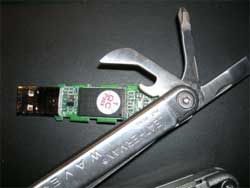| << Chapter < Page | Chapter >> Page > |
I don’t want to come across as defensive of the LMS but it is simply an aggregation of tools (and the best LMSs have loose coupling of the tool-sets i.e. pluggable), many of which are Web 2.0 tools and can be used in a wide variety of contexts. Agreed though that in most instances the LMS and its typical usage is a reflection of the institution, a desire for organisation and control. But I still think these technologies have a lot of life left in them. For example, Moodle 1.7 has customised roles which allows all sorts of possibilities of supporting a spectrum of permissions for people within and external to institutions. I’m about to use this to support an idea I’ve had for a while which is to support small grassroots non-profit community groups with access to these online community spaces. Change the language pack, alter a few tools and bingo …In 1.8 Moodle Networks enable almost any configuration of organisational construct you can imagine and we are using SSO with web services. I would argue that we have the first stages of an eFramework implementation! And Mahara Moodle interface underway right now.
My apologies - rambling on again about my projects and I’ve already had my say. What I am trying to convey though is that there are many routes to similar goals. I don’t think wikis are the (total) silver bullet - the technology has some way to go, there’s still barriers to entry with varieties of syntax, poor editors and they don’t support many activities (yet!). But an open wiki is an admirable and important part of the mix, no doubt. I am a big fan of the direction of WikiEducator. I’m just wanting to get across that I don’t want to throw the baby out with the bath-water when it comes to LMSs - they can and are evolving and I find them a hotbed of innovation. Totally agree on SCORM though, massive waste of time and energy and for what? “alien content” - spot on. Why have a LMS if it’s just a SCORM player?
Go WikiEducator and radical thinking for the betterment of the world’s learners.
Cheers Richard
Hey Richard - great to touch base on Terra Incognito.
I think the success of New Zealand’s open source work in Education is strongly linked to the No.8 Wire approach to Kiwi ingenuity. Their has been a strong reflective culture and the willingness to experiment taking calculated risks. Without this approach - we wouldn’t be where we are today.
My concern with LMSs is that they are increasingly becoming the “Leatherman” of eLearning - You have every conceivable tool- none of which does the job properly. For example, the wiki-in-drag implementations of this collaborative innovation within a cohort-based LMS environment or the tweaking of personalised publishing tools like blogs into learning environments. Sure they add value - but at the same time constrain the potential of what these Web 2.0 tools were designed for.
If only we could add a flash drive to our super tool. image courtesy of wikicommons


Notification Switch
Would you like to follow the 'The impact of open source software on education' conversation and receive update notifications?